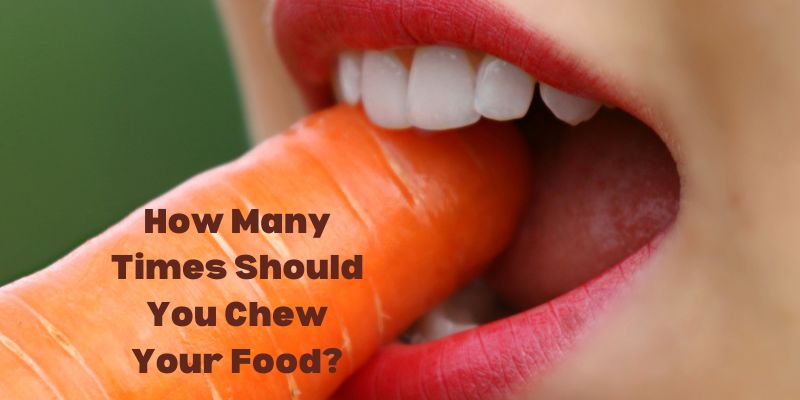Have you ever wondered how many times should you chew your food before swallowing it? The simple act of chewing plays a vital role in our overall digestion and well-being. It’s not just about mindlessly grinding our food, it’s about taking the time to properly break it down into smaller particles. In this article, we will provide the optimal number of times you should chew your food and explore the reasons why this practice is essential for your digestive health.
Understanding the Digestive Process
Digestion begins in the mouth, where food is broken down into smaller particles through the process of chewing. Chewing helps to mechanically break down food and mixes it with saliva, which contains enzymes that initiate the digestion of carbohydrates. Properly chewing food allows for better nutrient absorption and reduces the strain on the rest of the digestive system.
Recommended Chewing Techniques
Pay Attention to the Texture
Foods with varying textures require different amounts of chewing. For instance, crisp vegetables and dense meats may require more chewing compared to softer foods like cooked grains or ripe fruits.
Take Smaller Bites
By taking smaller bites, you allow for easier chewing and more thorough mixing of food with saliva.
Chew until the Food is Well-mashed
Continue chewing until the food in your mouth is thoroughly mashed and has a semi-liquid consistency. This ensures that your food is properly broken down and ready for further digestion.
Chew Slowly
Eating slowly and mindfully not only enhances the overall eating experience but also allows you to chew your food adequately. It takes time for your brain to register that you’re full, so chewing slowly can help prevent overeating.
The Ideal Chewing Frequency
While there is no universally agreed-upon number, the general recommendation is to chew each mouthful of food around 20 to 30 times. This number may vary depending on factors such as the texture and density of the food. Softer foods may require fewer chews, while harder foods may require more. Ultimately, the goal is to break down food into a manageable consistency before swallowing.
Benefits of Proper Chewing
Improved Digestion
Thoroughly chewing your food aids in the digestion process, allowing your body to extract nutrients more efficiently.
Enhanced Nutrient Absorption
Proper chewing increases the surface area of the food particles, making it easier for digestive enzymes to access and break down nutrients.
Weight Management
Chewing slowly and mindfully promotes a sense of fullness, which can help prevent overeating and support weight management goals.
Decreased Digestive Discomfort
By adequately breaking down food before it enters the stomach, you can reduce the risk of digestive issues such as bloating, gas, and indigestion.
Drawbacks of Inadequate Chewing
Impaired Digestion
Insufficient chewing can strain your digestive system, leading to incomplete nutrient absorption and potential digestive discomfort.
Increased Risk of Choking
Not chewing your food properly increases the risk of choking, particularly with large or tough food pieces.
Overeating
Rapidly consuming food without proper chewing can contribute to overeating since the brain doesn’t have enough time to register satiety signals.
You may also like:
Top 20 Best Foods for Hair and Scalp
Is Salt Water Good for Your Hair and Skin?
Should You Take Ashwagandha in the Morning or at Night?
Conclusion
Proper chewing is an essential yet often overlooked aspect of our daily eating habits. By adopting mindful chewing techniques and aiming for an optimal number of chews per bite, you can improve digestion, enhance nutrient absorption, and support your overall well-being. Remember, taking the time to chew your food thoroughly is crucial for reaping the benefits of the food you consume.
While the recommended number of chews per bite ranges from 20 to 30, it’s important to emphasize that this is a general guideline.
Factors such as food texture, personal preference, and dental health may influence the ideal chewing frequency for individuals. The key is to pay attention to the consistency of the food in your mouth and continue chewing until it reaches a well-mashed state.
